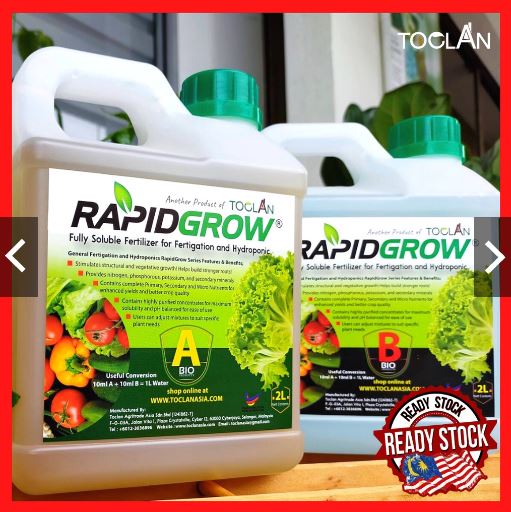Hydroponics, a soil-less method of cultivating plants, has gained immense popularity in recent years due to its efficient use of resources and ability to produce higher yields. One crucial aspect of successful hydroponic cultivation is the proper use of fertilizers. In this article, we'll explore the essentials of hydroponics fertilizer and its role in fostering optimal plant growth.
The Basics of Hydroponics Fertilizer:
Unlike traditional soil-based farming, hydroponics relies on nutrient-rich water solutions to deliver essential elements directly to plant roots. Hydroponic fertilizers are specially formulated to provide a balanced mix of macronutrients and micronutrients crucial for plant development. These nutrients include nitrogen (N), phosphorus (P), potassium (K), calcium (Ca), magnesium (Mg), sulfur (S), and various trace elements.
Key Components:
Nitrogen (N): Vital for leaf and stem development, nitrogen is a primary component in chlorophyll, the pigment responsible for photosynthesis.
Phosphorus (P): Crucial for energy transfer and root development, phosphorus plays a pivotal role in flowering and fruiting stages.
Potassium (K): Essential for overall plant health, potassium aids in enzyme activation, regulates water uptake, and enhances resistance to diseases.
Calcium (Ca) and Magnesium (Mg): These secondary macronutrients contribute to cell structure, nutrient uptake, and enzyme activation.
Sulfur (S): An essential component of amino acids and proteins, sulfur is necessary for plant growth and development.
Trace Elements: Iron (Fe), manganese (Mn), zinc (Zn), copper (Cu), molybdenum (Mo), and boron (B) are micronutrients that plants require in smaller quantities for specific metabolic functions.
Benefits of Hydroponic Fertilizers:
Precise Nutrient Control: Hydroponic systems allow growers to fine-tune nutrient concentrations, ensuring plants receive an optimal mix for their growth stage.
Improved Nutrient Uptake: With nutrients readily available in the water solution, plants can absorb them more efficiently, leading to faster growth and higher yields.
Reduced Environmental Impact: Hydroponics minimizes nutrient runoff and soil degradation, promoting a more sustainable and eco-friendly approach to agriculture.
Disease Prevention: Hydroponic systems can reduce the risk of soil-borne diseases, providing a cleaner and healthier environment for plant growth.
Conclusion:
Hydroponics fertilizer is a cornerstone of successful soil-less cultivation, offering a precise and efficient way to deliver essential nutrients to plants. As the demand for sustainable farming practices continues to rise, hydroponics stands as a viable solution, maximizing resource utilization and minimizing environmental impact. By understanding the importance of balanced nutrient solutions, hydroponic growers can unlock the full potential of their crops and contribute to a more resilient and sustainable agricultural future.

